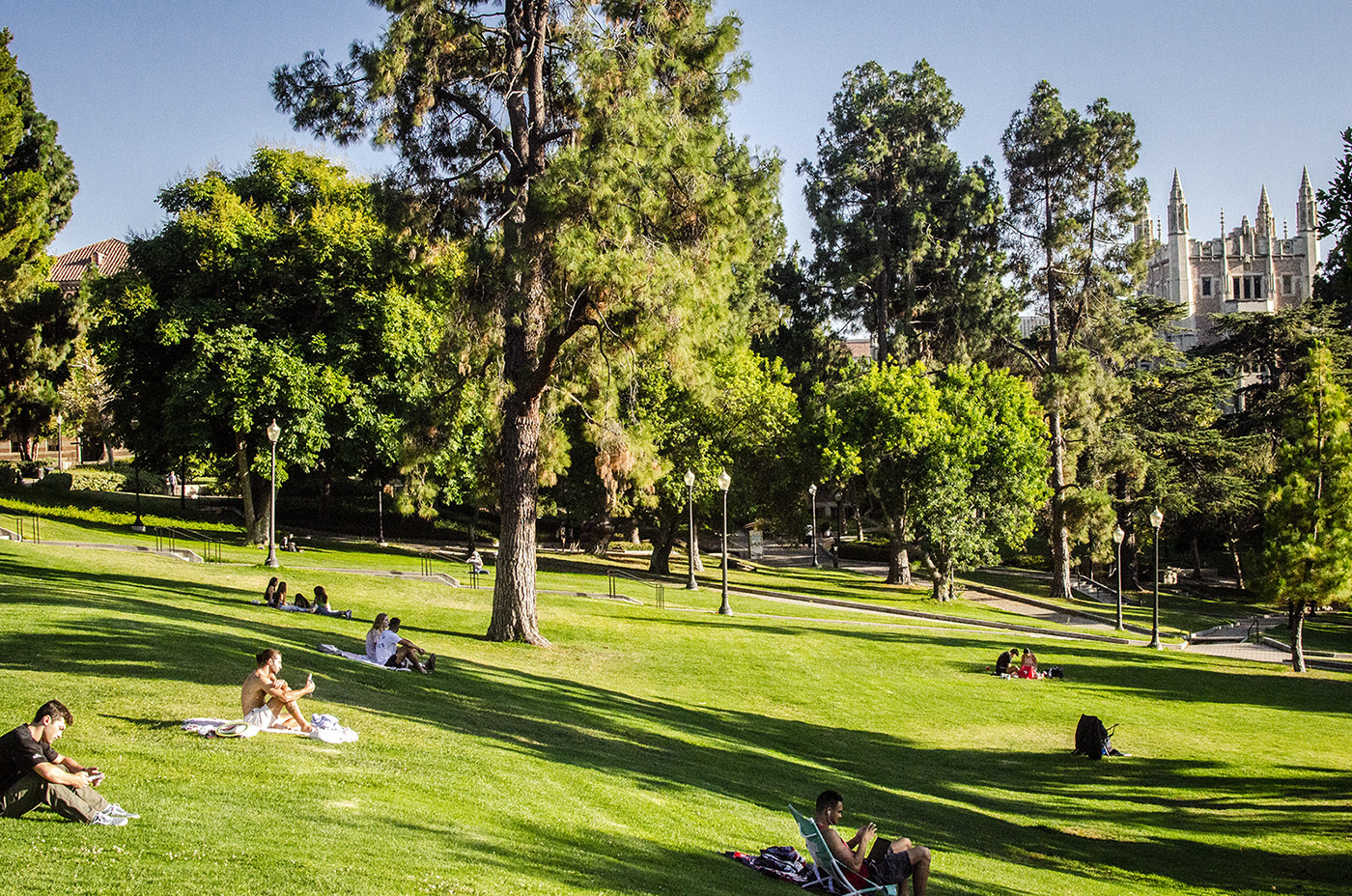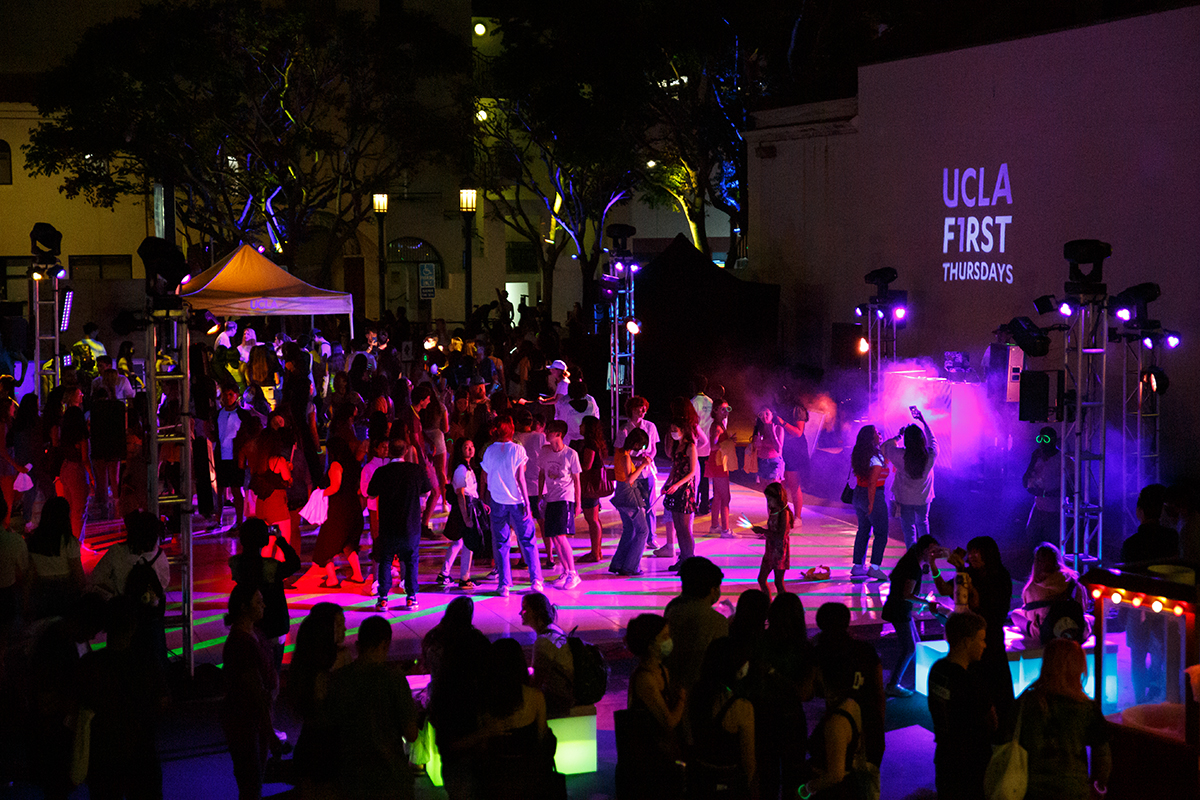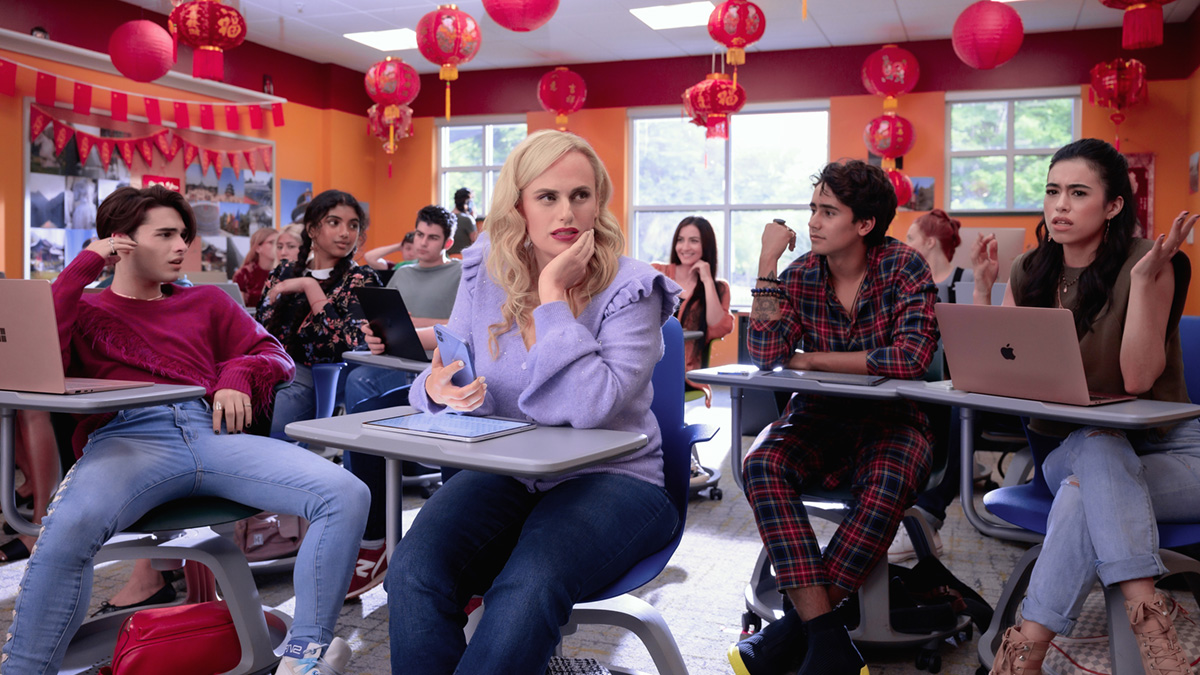Nostalgia: Connecting Bruins to their roots and inspiring the college experience

Students sit on the grass near Janss Steps. Different students who hail from places inside and outside of Westwood may experience feelings of nostalgia differently as a positive attachment to home or a way to reflect on one’s personal journey. (Daily Bruin file photo)
By Seema Thapa
Dec. 7, 2023 10:56 p.m.
Nostalgia has the powerful ability to connect people to their needs and sense of self, a theme presented even as far back as the tale of Greek mythological character Odysseus, according to the Society for Classical Studies. As Bruins go through the motions of college, nostalgia serves as a way to combat difficulties adjusting to a new environment and inspire action forward.
According to Merriam-Webster, nostalgia is the sentimental yearning for some past period. According to the American Psychology Association, the transition from young adolescence to adulthood, a period often experienced in college, exacerbates the effects because it is such an essential stage of development. Nostalgia can have numerous functions, but through forging connections between the past and present, it provides an emotionally grounding experience.
Associate philosophy professor Josh Armstrong added other possible explanations for the peak in nostalgia during young adulthood.
“You’re out of the adolescent period where you’re primed to try things out. You’re settling into the person you’re going to become, and you’re less likely to make radical changes in your habits, your dispositions, your inclinations,” Armstrong said. “That recognition of a more stable, less exploratory mode of living may incline one towards more nostalgia.”
Bruins who have moved away from home may find a stronger sense of stability and confidence through past memories, said first-year music industry student Dlency Zheng. She found that her experiences in China before coming to Westwood helped her find her footing in Los Angeles’ music spaces and with other music students.
“In a great extent, it (nostalgia) really empowered me to be bold enough to make these attempts in the future,” Zheng said. “Back in high school, I had a band on my own, and we have signed a music label. We have these solid bases back then that actually gave me the courage to be here with these amazing people.”
According to The New York Times, the longing for the past evoked by nostalgia used to be classified as a disorder by doctors. However, contemporary scientists take on a different approach, finding that nostalgia can be used as an effective coping mechanism. For example, in a North Dakota State University study, psychologists tried to create existential feelings by having subjects read texts about the futility of life, testing whether nostalgia helps or discourages them when experiencing despair. Participants who had induced feelings of nostalgia before reading the essay were less swayed by its negative message.
According to the Handbook of Experimental Existential Psychology, nostalgic engagement is stated to be therapeutic in times of loneliness, separation and alienation. Bruins may relate to using nostalgia as a form of managing difficulties, as these feelings and worries can be hallmarks of the college experience.
Fourth-year sociology student Georgette Alcantar said that despite living in Southern California and experiencing a similar culture her whole life, she is still very prone to reminiscing. She finds herself often looking at old designs that people from LA used to wear, or companies that are no longer in existence. These feelings of nostalgia prompt her to think back fondly to the times when she was younger.
Local and international students may feel connections to their past differently, but nostalgia remains a universal feeling, according to Bruins. Studies done by psychologists at Southampton show the defining features for nostalgia in England were the same as in Africa and South America – people reminisced about friends, family, holidays, songs, events and places.
Nostalgia is a bittersweet emotion according to the APA, as humans have an evolutionary precedent to want to revisit their past and always learn from it. However, the sadness of knowing times have irrevocably changed reminds individuals to live in the present.
The mixed feelings of bittersweetness from the loss of past lifestyles also resonate with Bruins, Zheng added.
“I have a younger sister back at home, and she is feeling kind of separating anxiety these days. It kind of makes me feel bad that I’m not spending enough time with my family, which I could have been if I didn’t choose to study abroad,” Zheng said. “But the sweeter part of it might be whenever I’m thinking they’re backing me up.”
Armstrong said that in the narrative of stories and events that define an individual, nostalgia aids in providing an emotional component. This bridge that nostalgia creates between earlier and later experiences allows one to get in touch more deeply with their past.
On the whole, by maintaining this relationship with the past versions of oneself, nostalgia can be a motivating force for young adults. Alcantar said by reflecting on all aspects of her life, she generates a stronger understanding of herself and who she wishes to be.
“I’m always looking at my past self, trying to better her,” Alcantar said. “And also looking back to see what younger me would have wanted to do, or what’s the person I want to be. I look back at maybe I wasn’t that person, but now I want to keep bettering myself to be that person.”




